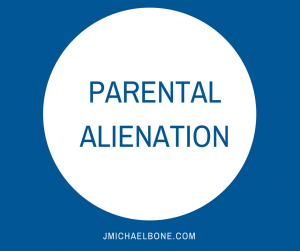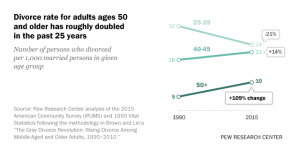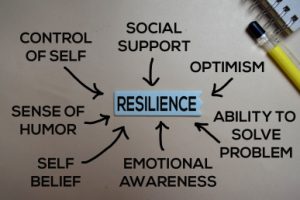
DuPage Divorce: What is Parental Alienation in Illinois law?


Feedspot ranks the best Divorce blogs from thousands of blogs on the web and ranked by relevancy, authority, social media followers & freshness.
Check out #22 !
The subject of the use of Artificial Intelligence in medicine, engineering and other professions has become heightened and very contentious. AI, as many people know, has the ability to very quickly aggregate and analyze data (information), and to provide contextual and reasoned answers to questions posed to these computer platforms. The use of AI might be attractive to some lawyers that might use AI to analyze cases, find cases, or to write letters or motions that are submitted to the court.

However, it must be said that Family Law, in particular, is a very specialized and important area of the law, that requires far more than data analysis, or manufactured pleadings. In my view, every client and every family and child has to be assessed and represented as a unique and very individual case. Every situation involving the circumstances of a family, the behaviors of a parent, or the special needs of a child requires not a “data-drive” approach, but a nuanced and careful approach that focuses on an individual and experienced assessment of that client’s goals and needed outcomes.
The Illinois Supreme Court recently published some guidelines on the use of AI by attorneys. echoing the earlier guidelines promoted by the ABA. These comments are what is likely to be the first thoughts on how we as practitioners utilize AI in the management of our cases. From my perspective, AI might be a helpful tool for engineers to fabricate a stronger sheet of metal, but AI truly must be utilized with caution by lawyers managing family law cases that require careful individual assessment and the needed influence of an experienced family lawyer.
| A “source of funds” rule refers to a legal principle, primarily used in divorce proceedings, that determines whether a property should be classified as marital or separate based on the origin of the funds used to acquire or improve it; essentially, it means that if a spouse contributes premarital funds to purchase a marital asset, they may retain a separate interest in that asset proportional to their contribution.
The husband filed for dissolution after 18 years of marriage, disputing whether two adjacent lots were marital property. One lot included the marital home, and the other had a barn for the wife’s horse training business. The husband purchased both lots before the marriage, but both were encumbered by loans paid off with a mix of marital and premarital funds. The properties appreciated significantly during the marriage due to market forces. The key issue was whether paying down the loans with marital funds created a marital interest in the properties. The District Court concluded that the lots were nonmarital property, except for the marital contributions toward the loan principals. The court awarded the husband the properties and the wife a cash equalization payment for half of the marital contributions. The wife appealed, arguing that the properties should be considered marital due to the use of marital funds to pay down the loans. The Court of Appeals affirmed the district court’s decision regarding the land portions of the lots, finding them nonmarital. However, it reversed the decision regarding the barn and other improvements on one lot, classifying them as marital property due to the joint efforts in their construction and operation. The court modified the equalization payment to the wife accordingly. The Supreme Court reviewed the case and adopted the “source of funds” rule, which considers the marital estate’s acquisition of equity in the properties through loan paydowns with marital funds. The court reversed the Court of Appeals’ decision regarding the land portions of the lots and remanded the case for a new hearing to determine the equitable division of these properties, considering the source of funds rule. The decision regarding the barn and other improvements was affirmed. |
Parental alienation is defined as a mental condition in which a child—usually one whose parents are engaged in a contentious separation or divorce—allies themself strongly with the preferred (alienating) parent and rejects a relationship with the other (targeted) parent without legitimate justification.
– The mental component of this condition is a false belief that the rejected parent is evil, dangerous, or not worthy of love.
– The behavioral component of parental alienation is the firm, persistent rejection of a relationship with the targeted parent.
Custodial Interference is a form of child maltreatment and a crime under family violence. Raising awareness about this issue can help reduce alienating behaviors, such as withholding and manipulating children.

Your help would be appreciated in sharing and promoting this campaign throughout the month of April.
The goal is to urge parents to contact their governmental representatives (state legislators in the U.S.) to ask them to take a stand against custodial interference in all its forms.
Parental alienation occurs when efforts are made to discourage a child’s attachment to a parent. This often occurs during acrimonious divorces, when one parent discourages the child/children from having a relationship with the other. Mechanisms often used to alienate the child/children are extremely harmful to children and include the following:
So what accounts for the post-holiday divorce?
According to experts, the biggest reason that divorces rise following the holidays is a desire for one person in the marriage to start fresh and begin another year with a clean slate.
More and more, people in their 50’s and 60’s are recognizing that their marriage has broken down, the children are raised, and they are seeking a legal separation or divorce. In these cases, there are often retirement assets that need to be divided, and other assets, like a home, that need to be valued and the equity determined. As many American are living into their 80’s and 90’s, many adults find that the want to re-engineer their last trimester of life and find a measure if independence and happiness. Jennifer Thompson wrote an essay that might be helpful to those considering divorce later in life. While written with a female reader in mind, the advice is sound and applies to both men and women in some respects. From her bio: ” Jennifer Thompson was a financial advisor for over 20 years. Now, as an author and international speaker, she teaches women the techniques to develop a consciousness for abundance for a more compelling life. ”

As the year 2020 comes to an end and a new year begins, it is always helpful to remember what approaches are helpful and uplifting when dealing with a stressful and difficult court case involving children, such as a parental alienation case or a child custody modification case. One of my clients this week reached out to both myself and an excellent clinician that is supporting the case with a concern that her/his children are just so damaged, and so unruly in his time spent with them. Seeing the kids acting out, and suffering, causes my client to suffer, too. Very positive steps are being accomplished in the case, and the clinical support has been excellent, but it’s still tough on parents that have to experience their kids in distress in the midst of parental conflict and the damage of an alienation campaign. The following excerpt is excellent, and focuses on the need for parents to maintain a positive psychology in the midst of these court cases.

Sharon Stines, PsyD: No matter what is going on in your personal life, particularly with regards to the challenges you are facing with your co-parent and children, it can help to avoid expending all of your energy focusing on what doesn’t work. Maintaining a positive attitude can be difficult, but try to practice gratitude by waking up each morning and welcoming the day. Notice the good things you do have and keep in mind the things in life you are thankful for, instead of focusing on the negative.
Another helpful practice is demonstrating resilience and confidence each day to your children. You do this by living these values, by genuinely showing your children your strength and love for them. Children may naturally gravitate toward strength. If you can show yourself and your children unwavering and positive strength through the process of living well, you may be able to minimize any damage caused by the other parent. This may, in fact, be one of the most important things you do for your children in the long run.